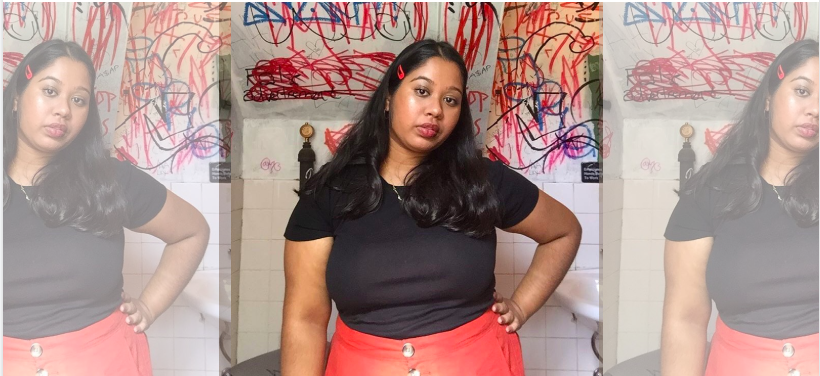
On a Friday night, I found myself scrolling into the never-ending void of the Internet, trying to do anything but the 10-page paper due in a few days. But something had caught my eye. It was a Bengali girl I knew who tweeted:
Ugh, aunties are the worst. They never pass up the opportunity to comment on my weight. All bodies are beautiful just the way they are. Wish someone could teach them that.
I stared at the screen, rereading the sentence over and over, and over again. I had remembered that this same girl had called me a hippo a few weeks ago at a Bangladeshi neighborhood gathering. I rolled my eyes as I saw her tweet going viral, skinny girls retweeting and commenting preach emojis.
I never had problems concerning my weight until middle school. A poisonous mixture of developing a binge eating disorder after I was sexually assaulted and getting diagnosed with polycystic ovarian syndrome had resulted in me rapidly gaining weight.
[Read More: No, I’m not Into you: the Struggle to Find Female Friends as a Queer Person]
Since then, every time I went to a mela (street fair) or a dawaat (family gathering), I could never leave without a handful of aunties poking my stomach, telling me that I should lose weight if I ever wanted to find a husband. However, judgemental neighborhood aunties are not the only ones perpetuating the vicious cycle of fat-shaming in our communities. It has been so embedded into our culture that younger generations have too succumbed to fat-shaming and to the mindset that fatness equates to ugliness.
I remember my young cousins coming over to my house and starting at the age of just six years old, they had started to portion their food. When I asked if they wanted another slice of pizza, they immediately responded, “No! I’ll get fat if I eat more food.” I was horrified by the words coming out of my innocent 6-year-old cousin’s mouth.
I have also come to realize over the years how brown girls my age treated me differently in comparison to my skinny friends. It was as if I wasn’t up to their standards and everything I said or did, didn’t matter. I found myself trying to be the funniest and the nicest just to be heard.
Things are even worse with South Asian men. Although brown men are not as verbal as your judgy auntie, passive behavior and isolation feel far worse. Especially when girls are taught that validation from men defines our worth. The saying “actions speak louder than words” is extremely valid when it comes to South Asian plus-size women’s experiences with men and their specific brand of fat-shaming.
Being fat means not even existing when I’m surrounded by brown men my age. At every party I went to, I was completely invisible to them as they chatted up my skinny friends. I am Priya’s or Bushra’s “what’s her name?” friend pretending to be part of the conversations even though I clearly know it’s between the guy and the others.
Romantic relationships with men also seem impossible because of my body.
I remember in my freshman year of college, I had secretly started going out with a popular Bengali frat boy. But this “secret relationship” wasn’t just hidden from our parents as we told them we were going to late-night study sessions with our classmates. I was also a secret from his friends.
[Read More: A Love Lost & Gained: Healing From a Breakup]
He had reassured me constantly that it’s because I was “special” and making this relationship a secret made our love for each other even more meaningful. Looking back, I blame myself for being so naive but I also realize that his charisma was just a cloak for his manipulation.
When I finally confronted him about why I couldn’t meet his friends if he claimed that he loved me so much, he confessed to me something I don’t think I’ll ever forget. He was too embarrassed to show the world that he was dating a plus-size girl.
When it comes to romantic relationships or even marriage, South Asian women have an abundance of expectations to which to live up. We have to make sure we can cook, clean, are light-skinned and also have the ‘perfect figure.’ Which meant that I wasn’t good enough for him.
But the truth is that he was too much of a coward to look past the expectations our traditions placed on us to see the beautiful girl I really am.
Fatphobia and fat-shaming are intergenerational issues but our community needs to put a stop to them so our bright and beautiful future daughters will no longer feel invisible due to archaic expectations. Down the line, perhaps I’ll find someone who will appreciate me for me, and not view me as an embarrassment, but as simply, a girl they unconditionally love.




